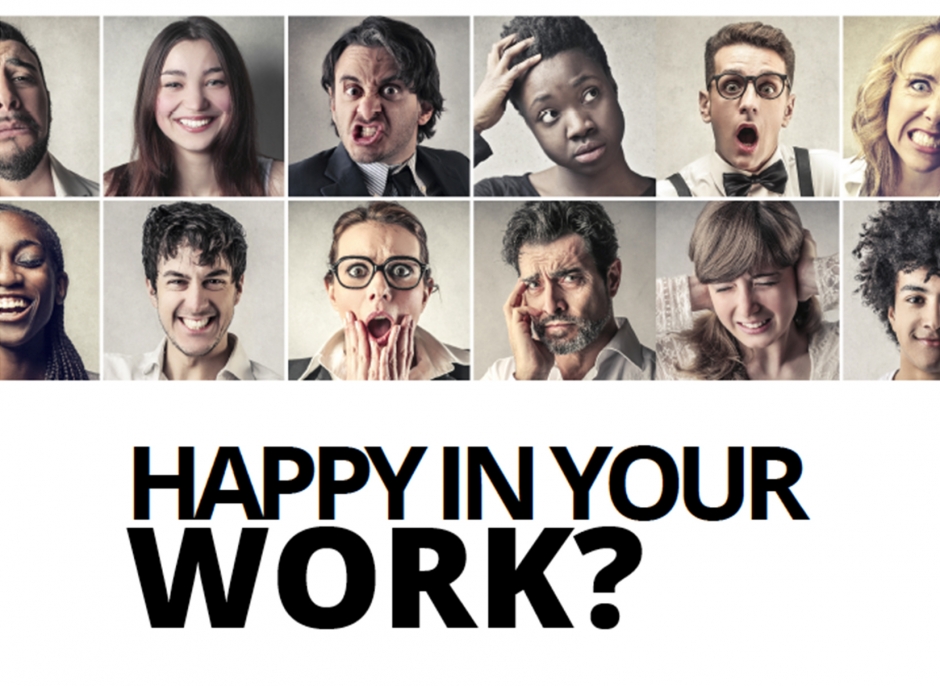At the start of 2016, The Best You performed a survey of attitudes to work of people throughout the UK, including questions about happiness and what can be done to give people more fulfillment in their working lives. The Life Meaning survey had some surprises and shocks. We take a look at what this means for people in the UK
In total, 2,000 people from all regions of Britain responded to our survey, with age groups between 18-65+ and, with both genders polled, it created a comprehensive snapshot of British attitudes to work at the start of 2016.
The good news is that 62.5% of people asked if they “love their job” said they did so “all the time” or at “some of the time”. However, more concerningly, 37.5% answered with “not really” or “not at all”.
The Best You was interested to know what positive extra benefits people received from work, above and beyond a salary, with 55% listing a pension plan and 54% citing sick pay as a benefit. Bonuses were the third most commonly mentioned bonus, at 23%.
This is the upside of the picture, but there was plenty of room for improvement, with almost 50% of respondents wanting more emphasis on work-life balance and, surprisingly, 41% wishing their offices had natural light.
Most valued and desired was a fair reward for work done, with “regular salary increases” coming in at just over 52%.
These answers give some of the clues to what makes 38% of Britons unhappy at work.
Asked to give specific reasons for their unhappiness, a definite theme developed.
Here are some sample answers to the question:
“What do you think UK workplaces need, in order for everyone to feel happy at work?”
- A happy environment where everyone is valued
- Be more accommodating of introvert personalities in terms of office layout and interaction
- Bosses that aren’t bullies
- Coaching and mentoring
- Good bosses
- Less aggressive management
These answers painted a bleak picture for people unhappy at work, feeling undervalued, stressed and bullied.
Many people also felt trapped in their jobs, and reinforced negative opinions about themselves by telling themselves negative messages.
- 27% didn’t feel “brave enough” to make changes in their lives
- 24% said they felt too old to make changes in their lives
- 24% also said they “didn’t have the necessary skills”
- 11% believe they would “never be successful in what I truly enjoy”
Another question asked how many people had suffered from depression, with 42% of people confirming they had. Of these, 13% had done nothing about it, yet – a perhaps unsurprisingly similar amount to those who didn’t believe they would be successful in what they enjoy.
Another figure jumped out from the responses: Of those who said they don’t love what they do, a staggering 32% said they intended to do nothing about their unhappiness at work.
This final picture is something that particularly concerned Bernardo Moya, CEO and editor of The Best You.
“People need to know that there is always a way out. Feelings of fear, or being too old to make a change are about attitudes and beliefs. The good news is that with the correct mentoring and life skills, fear can be overcome and new attitudes of self-belief can be learned. These beliefs colour the way people think about things and stop them seeing the possibilities ahead of them.”
Moya went on to say that once people start to see their core beliefs have been holding them back, then new possibilities open up.
“The acquiring of new skills is actually easy, once you’ve acquired new attitudes,” he said, “38% of people unhappy in their work is a sizeable number. We’re here on earth for a short time, and I believe it’s vital people make the best of what they’ve got, if they’re just shown how.”
So, what solutions does Moya suggest?
“For those in the most stuck places, I think it’s important they recognise that change is possible,” he said.
“There are countless things you can do, once you recognise you need to change. Start reading around – speak to HR at work if possible, ask to go on personal development programmes. Changes in diet or exercise regime can make huge differences to people – but I think the most important thing to know is that change for the better is possible. It’s just waiting for you to take it.”
_____________________________________________________________________________________________________________________
The Best You Expo is designed to give you the choices you need to start afresh. It’s an opportunity to arrive with questions and leave with answers. Find out more, here thebestyouexhibition.com





